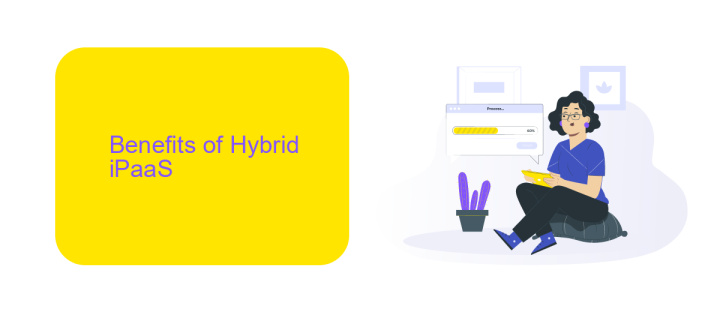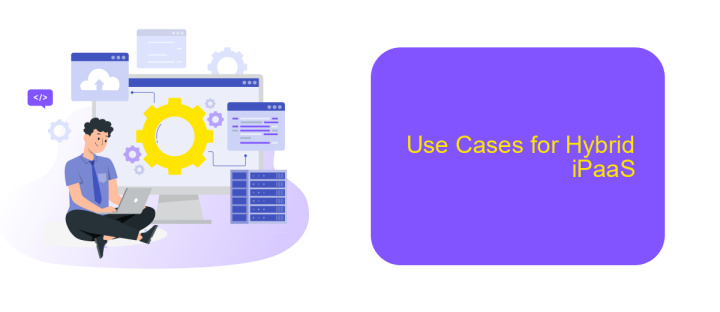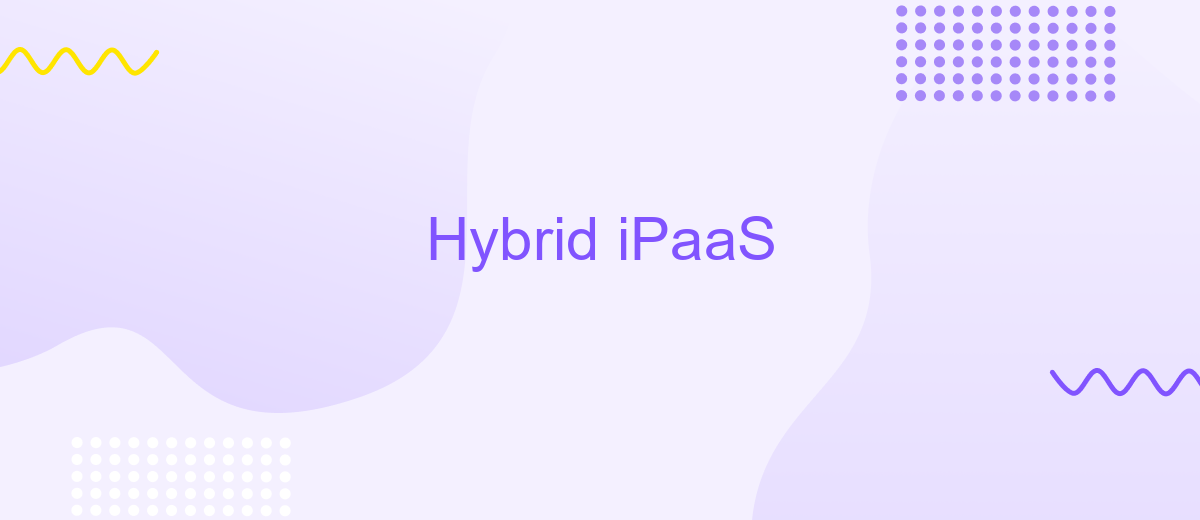Hybrid iPaaS
Hybrid Integration Platform as a Service (Hybrid iPaaS) is revolutionizing the way businesses manage and integrate their diverse applications and data sources. By seamlessly combining on-premises and cloud-based systems, Hybrid iPaaS offers unparalleled flexibility, scalability, and efficiency. This article explores the key features, benefits, and real-world applications of Hybrid iPaaS, highlighting its role in modern enterprise IT strategies.
Introduction to Hybrid iPaaS
Hybrid Integration Platform as a Service (Hybrid iPaaS) is a modern solution designed to streamline the integration of various applications, data, and processes across both cloud and on-premises environments. By leveraging Hybrid iPaaS, organizations can achieve seamless connectivity and data flow, ensuring efficient and scalable operations.
- Unified integration of cloud and on-premises systems
- Enhanced data management and accessibility
- Scalability to meet growing business demands
- Cost-effective and flexible integration solutions
One of the key advantages of Hybrid iPaaS is its ability to simplify complex integration tasks. Services like ApiX-Drive play a crucial role in this ecosystem by offering tools that facilitate easy setup and management of integrations. ApiX-Drive enables businesses to connect various applications effortlessly, ensuring real-time data synchronization and operational efficiency. This makes Hybrid iPaaS an indispensable asset for modern enterprises aiming to stay competitive in a rapidly evolving digital landscape.
Benefits of Hybrid iPaaS

Hybrid iPaaS offers a unique blend of flexibility and scalability, enabling businesses to seamlessly integrate on-premises and cloud-based applications. This hybrid approach ensures that data can flow smoothly across diverse environments, facilitating better collaboration and decision-making. By utilizing hybrid iPaaS, organizations can maintain control over sensitive data while leveraging the scalability of the cloud, ensuring compliance with regulatory requirements and optimizing resource allocation.
One of the significant benefits of hybrid iPaaS is its ability to simplify complex integration processes. Tools like ApiX-Drive make it easier to connect various applications and automate workflows without extensive coding knowledge. This service allows businesses to quickly set up integrations, monitor data flows, and manage errors in real-time. As a result, companies can reduce operational costs, enhance productivity, and respond more swiftly to market changes, ultimately driving innovation and growth.
Challenges of Hybrid iPaaS

Implementing a Hybrid iPaaS solution can present several challenges that organizations must navigate to ensure seamless integration and efficiency. One of the primary difficulties lies in managing the complexity of integrating multiple systems and platforms, each with its own set of protocols and standards.
- Data Security: Ensuring data security across different environments can be a daunting task, as hybrid solutions often involve both on-premises and cloud-based systems.
- Scalability: Balancing the scalability of the solution to accommodate growing data volumes and user demands without compromising performance.
- Interoperability: Achieving interoperability between diverse systems and applications, which may require significant customization and ongoing maintenance.
- Cost Management: Controlling costs associated with implementing and maintaining a hybrid iPaaS, including potential hidden expenses.
- Vendor Lock-in: Avoiding dependency on specific vendors that can limit flexibility and future integration options.
Services like ApiX-Drive can help mitigate some of these challenges by providing a user-friendly platform for setting up integrations quickly and efficiently. With its robust features, ApiX-Drive simplifies the process of connecting various applications, ensuring data flows smoothly and securely across the hybrid environment.
Use Cases for Hybrid iPaaS

Hybrid iPaaS (Integration Platform as a Service) offers versatile solutions for businesses needing to connect disparate systems, applications, and data sources. By combining on-premises and cloud-based integration capabilities, Hybrid iPaaS ensures seamless data flow and operational efficiency across various environments.
One of the primary use cases for Hybrid iPaaS is in the realm of data synchronization. Organizations can synchronize data between CRM systems, ERP systems, and other business applications, ensuring that all departments have access to up-to-date information. This real-time data synchronization is crucial for maintaining data consistency and accuracy.
- API Management: Manage and integrate various APIs efficiently, ensuring secure and scalable API interactions.
- Data Migration: Seamlessly migrate data between different environments, whether on-premises or in the cloud.
- Real-time Analytics: Enable real-time data analytics by integrating data sources and analytics platforms.
- Automated Workflows: Automate business processes by integrating various applications and services, reducing manual tasks.
Tools like ApiX-Drive can significantly enhance the integration process by offering pre-built connectors and a user-friendly interface for setting up integrations. This allows businesses to quickly and efficiently link their systems without extensive coding, making Hybrid iPaaS an invaluable asset for modern enterprises.
Future of Hybrid iPaaS
The future of Hybrid iPaaS (Integration Platform as a Service) is poised to revolutionize the way businesses manage their data and applications. As organizations increasingly adopt multi-cloud strategies, the need for seamless integration across diverse environments becomes paramount. Hybrid iPaaS solutions will continue to evolve, offering enhanced capabilities for real-time data processing, AI-driven analytics, and more robust security measures. These advancements will empower businesses to achieve greater agility, scalability, and efficiency in their operations.
One of the key trends in the future of Hybrid iPaaS is the simplification of integration processes. Services like ApiX-Drive are leading the way by providing user-friendly platforms that enable businesses to easily connect their applications and automate workflows without extensive coding knowledge. By leveraging such tools, companies can reduce the complexity and cost associated with traditional integration methods. As a result, we can expect to see a surge in the adoption of Hybrid iPaaS solutions, driving innovation and growth across various industries.
FAQ
What is Hybrid iPaaS?
How does Hybrid iPaaS benefit organizations?
Can Hybrid iPaaS handle real-time data integration?
Is it possible to automate workflows using Hybrid iPaaS?
What are some common use cases for Hybrid iPaaS?
Do you want to achieve your goals in business, career and life faster and better? Do it with ApiX-Drive – a tool that will remove a significant part of the routine from workflows and free up additional time to achieve your goals. Test the capabilities of Apix-Drive for free – see for yourself the effectiveness of the tool.

